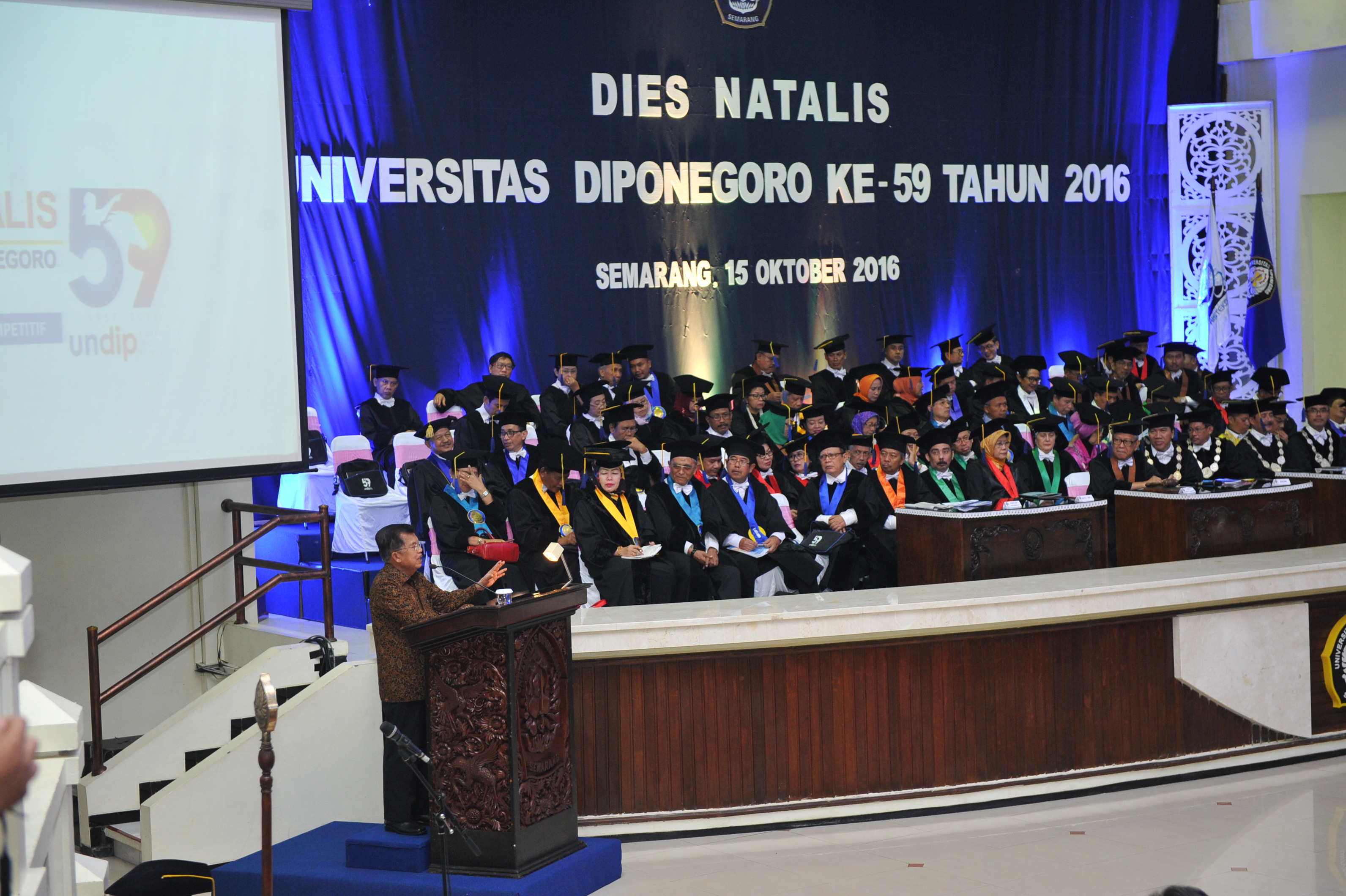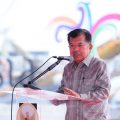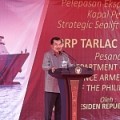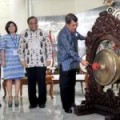Semarang-wapresri.go.id On Saturday (15/10), Vice President Jusuf Kalla said that technology, innovation, and human resources are essential for Indonesia as the biggest archipelago in the world with 75% of its area consisting of water to be the world’s maritime center.
“If we want to win the competition, the key elements are good human resources, technology, and innovation. Above all, it is human resources that determine the competitiveness. Certainly, universities play a big role in enhancing the quality of human resources,” said the Vice President in his scientific speech during the 59th anniversary of Diponegoro University held at Gedung Prof. Soedarto, SH of Diponegoro University in Semarang.
The Vice President then highlighted Indonesia’s lowering rank in the competitiveness index from 37 to 41.
“We might have fixed everything, but other countries might have done even better,” he argued, adding that the core of competitiveness is the ability to do things in a better, cheaper and faster way.
Speaking of the theme of his speech, that is maritime competitiveness, the Vice President urged people to change their mindset of maritime.
“Sea is no longer a separator among islands in Indonesia, it is now a connector. We, thus, shall use its potential for the sake of the people,” he affirmed.
The Vice President then asserted that as an archipelagic country, Indonesia highly needs to develop maritime system, infrastructure, and means of transportation to create connectivity among islands.
“Connectivity is a must in a bid to realize equality,” he said.
The Vice President also believed that many conflicts happening in the past in the country were due to inequality among regions.
“For that reason, government is making efforts to build connectivity by developing sea toll road or whatever it is named to reduce injustice or inequality,” he said.
To build such connectivity, he continued, technology is essential.
In the past, the Vice President said, there were only small ships having capacity of 5,000 to 10,000 tons, while now, as technology develops, human can have giant ships with far larger capacity.
“Unfortunately, some harbors in Indonesia do not fit large ships. Therefore, the small harbors should be equipped with extended transportation means or feeder,” he said, adding that it is thus vital to for universities to develop and introduce such technology.
Vice President also encouraged Undip to enhance its research on maritime competitiveness in a way that is applicable and beneficial for the public.
Previously, Research, Technology, and Higher Education Minister M. Nasir reported that Indonesia’s rank in the global competitive index has lowered from 37 to 41.
“Of 12 indicators, the most dominant are corruption, bureaucracy, and infrastructure. Despite less innovation, Indonesia still get 4.0 point which puts in on the 31st position, which previously 30th position, out of 144 countries; while in technology readiness, we got better points, from 3.5 to 4.6,” Minister Nasir said.
Also attending the event were Central Java Deputy Governor Heru Sudjatmoko, Head of Vice President Secretariat Mohamad Oemar, Vice President’s Deputy on Economic, Infrastructure, and Maritime Policies Tirta Hidayat, and Vice President’s Deputy on Equality and Human Development and Bambang Widianto.







